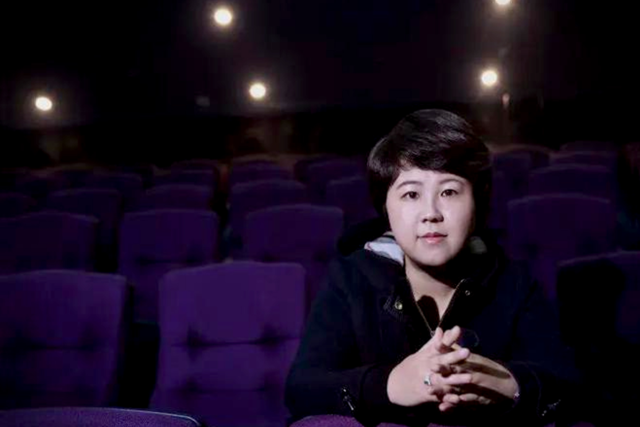By Maurice Smith
Los Angeles, CA (The Hollywood Times) 11/6/24 – Vertical Video Platforms, also called micro-dramas, are experiencing phenomenal worldwide growth!
 Among various modalities, enthusiasts, perspectives, and tastes, the arguments whether less is more vs bigger is better, permeates not only within value systems in life, but also in regards to feature films, and streaming content, and as one surveys the dramatic emergence of micro drama’s impact on the vertical video platform content market—- generating hundreds of billions worldwide in contrast to other more established powerhouse million dollar generating modalities of streaming apps, downloads and features, like Netflix, and Disney+, TikTok, Reels, and Instagram, there’s a new sheriff in town; the long-term market size for overseas micro-dramas is projected to be between $144 billion and $648 billion, with a neutral estimate of $360 billion. “According to the article, Playlet: The Rising Star of Vertical Micro Dramas, August 5, 2024, LA POST——Vertical Video Platforms, also called micro dramas, are experiencing phenomenal worldwide growth!
Among various modalities, enthusiasts, perspectives, and tastes, the arguments whether less is more vs bigger is better, permeates not only within value systems in life, but also in regards to feature films, and streaming content, and as one surveys the dramatic emergence of micro drama’s impact on the vertical video platform content market—- generating hundreds of billions worldwide in contrast to other more established powerhouse million dollar generating modalities of streaming apps, downloads and features, like Netflix, and Disney+, TikTok, Reels, and Instagram, there’s a new sheriff in town; the long-term market size for overseas micro-dramas is projected to be between $144 billion and $648 billion, with a neutral estimate of $360 billion. “According to the article, Playlet: The Rising Star of Vertical Micro Dramas, August 5, 2024, LA POST——Vertical Video Platforms, also called micro dramas, are experiencing phenomenal worldwide growth!
According to the article, in LA Post, ” Playlet: The Rising Star of Vertical Micro Dramas”, August 5, 2024. ‘ “micro-dramas condense stories that span hundreds of thousands of words into roughly two hour-long series, with each episode lasting only 1-2 minutes. These tightly paced, twist-filled episodes entice users to pay to unlock each subsequent installment”, and possibly the most explosive of these new entities is called Playlet. ” ‘
 The United States, as micro dramas proliferate in overseas markets like the musical ” British Invasion” of the 60’s, ” provides 60% of its revenue, with Southeast Asia , Australia, the United Kingdom, the Philippines, and Thailand , followed by ravenous users of download volume, with the leading markets composed of the United States, followed by the Philippines, India, Nigeria, and Indonesia,” according to Sensor Tower data , respectively speaking.
The United States, as micro dramas proliferate in overseas markets like the musical ” British Invasion” of the 60’s, ” provides 60% of its revenue, with Southeast Asia , Australia, the United Kingdom, the Philippines, and Thailand , followed by ravenous users of download volume, with the leading markets composed of the United States, followed by the Philippines, India, Nigeria, and Indonesia,” according to Sensor Tower data , respectively speaking.
In addition, according to Sensor Tower data, ‘ “This U S dominance is closely tied to the stronger willingness and ability of American users to pay., with the average payment per download in the U.S. being six times higher than in other markets.’ ”
Interestingly enough, Sensor Tower, expounded upon the inception and rapid growth of micro dramas, in an aforementioned article, published August 5, 2024, ” Playlet” The Rising Star of vertical micro dramas, when they chronicled the inception of micro-drama’s overseas development in August 2022, when Reel Short was launched, and subsequent creation of additional micro dramas.
Furthermore, per Sensor Tower, ” the trajectory of micro dramas impacted 28.23 million downloads in 2023, generating $56.71 million, in contrast to 2022’s net cash flow. The forecast dynamics and application of analytics called DAU (daily active users) per overseas short video platforms, and penetration rate of micro-dramas, juxtaposed by (ARPPU) average revenue per user of Netflix, and Disney+=long term projection of overseas micro dramas between $144 billion and $648 billion, vs “neutral estimate of $360 billion.”
Surprisingly, and in conclusion, a new company has emerged on the global micro drama markets, named Playlet, and since its January 2024 launch, has positioned itself at number 14 on the US iOS Entertainment category, effectively at number 5, acquiring over 4 million members, 100 million views and secured itself as the new sheriff on the micro-drama industry. Its founder, with over 15 years of internet industry experience, according to LA Post, in ” expertise in internet platform product design and logic, Jian (Phenix) Zhou is Micro show Time Limited CEO, CEO of Huanju Entertainment, General Manager of YY Gaming, Huya Live, and YY, JD. com’s e-commerce business and multiple billion-dollar projects, formerly in charge of China’s well-known platforms YY Gaming and Huya Live, left her familiar environment in 2019 to explore new avenues beyond gaming and live streaming. After a brief stint in JD. com’s e-commerce business, she turned her attention to micro-dramas.
According to an afore mentioned article, August 5, 2024, Zhou said ‘ “Mature fields tend to lead to fixed thinking and doing things by the book. I don’t like staying in my comfort zone for too long,” ‘ said Jian Zhou. Her willingness to step out of her comfort zone and innovate has been a key factor in Playlet’s rapid rise and remarkable success. Many internet products focus on leveraging their strengths, but for micro-dramas, it’s the weaknesses that are decisive,” Jian Zhou shared, providing her unique insight as a seasoned internet entertainment professional in the micro-drama industry. ‘ “Coming from a commercialization background, I am highly sensitive to categories with commercial potential.” ‘ said Jian Zhou. Micro-dramas condense stories that span hundreds of thousands of words into roughly two-hour long series, with each episode lasting only 1-2 minutes. These tightly paced, twist-filled episodes entice users to pay to unlock each subsequent installment. This precise understanding of both commercial logic and user psychology made Jian Zhou realize the potential opportunities in this new format. Unlike films or traditional TV shows that often showcase a director’s talent and style, micro-dramas are user oriented. This user-centric approach is a distinct advantage for internet professionals like Jian Zhou transitioning into the micro-drama space. One of the key factors behind Playlet’s rapid ascent in the U.S. micro-drama market is the selection of Jian Zhou as the chief strategist. Additionally, leveraging long accumulated overseas resources has been crucial in Playlet’s swift rise. ‘“Micro-dramas are part of the content industry. I believe a core issue is whether you respect the content, ‘” Jian Zhou explained. ‘“Many people treat micro-dramas as a business, producing shoddy work, thinking it’s enough just to have white actors, even if they speak with non-native English accents. Teams that don’t understand local content are bound to be eliminated. Moreover, you need to deeply cultivate the market. People often oversimplify the overseas market, assuming that what’s popular in China will automatically be popular abroad. Finally, you must find a production team that understands micro-dramas. Every step is crucial, and with the high cost of filming overseas, making one or two missteps can be very risky.” ‘
According to Reuters, China’s micro drama industry is worth $5 billion and is becoming a major competitor to China’s film industry, which is second in size only to Hollywood. In the United States, micro drama platform Reel Short, whose parent company is backed by Chinese tech giants Tencent and Baidu has recently outranked Netflix in terms of downloads on Apple’s U.S. app store, according to market researcher Sensor Tower. Few people are more aware of this growing trend in the United States than Omari Newton, (Netflix’s The Dragon Prince, Far Cry 6, Blue Mountain State). seasoned award winning-actor and head of Vancouver Film School, who is set to appear in an online interview with The Hollywood Times in a few weeks. Remarkably, Playlet has done what no other micro drama has done in just a few months and is climbing frantically up the charts!





